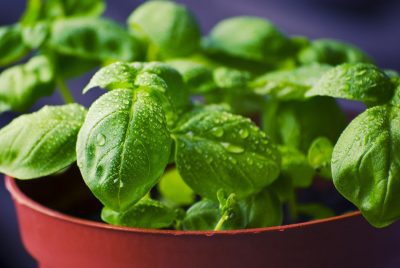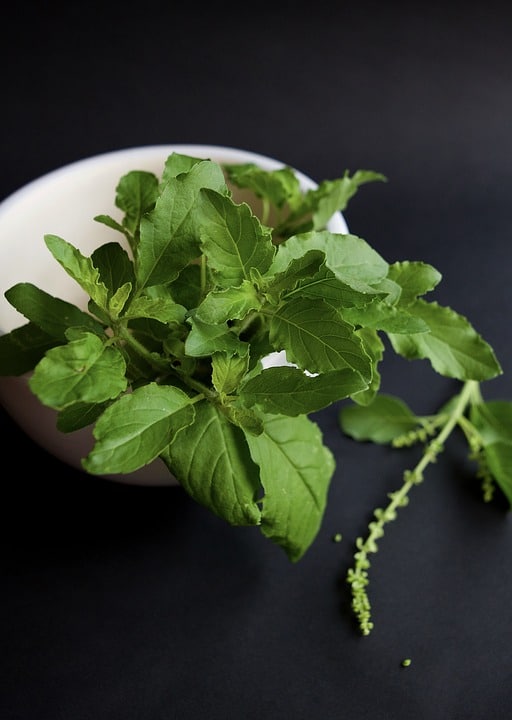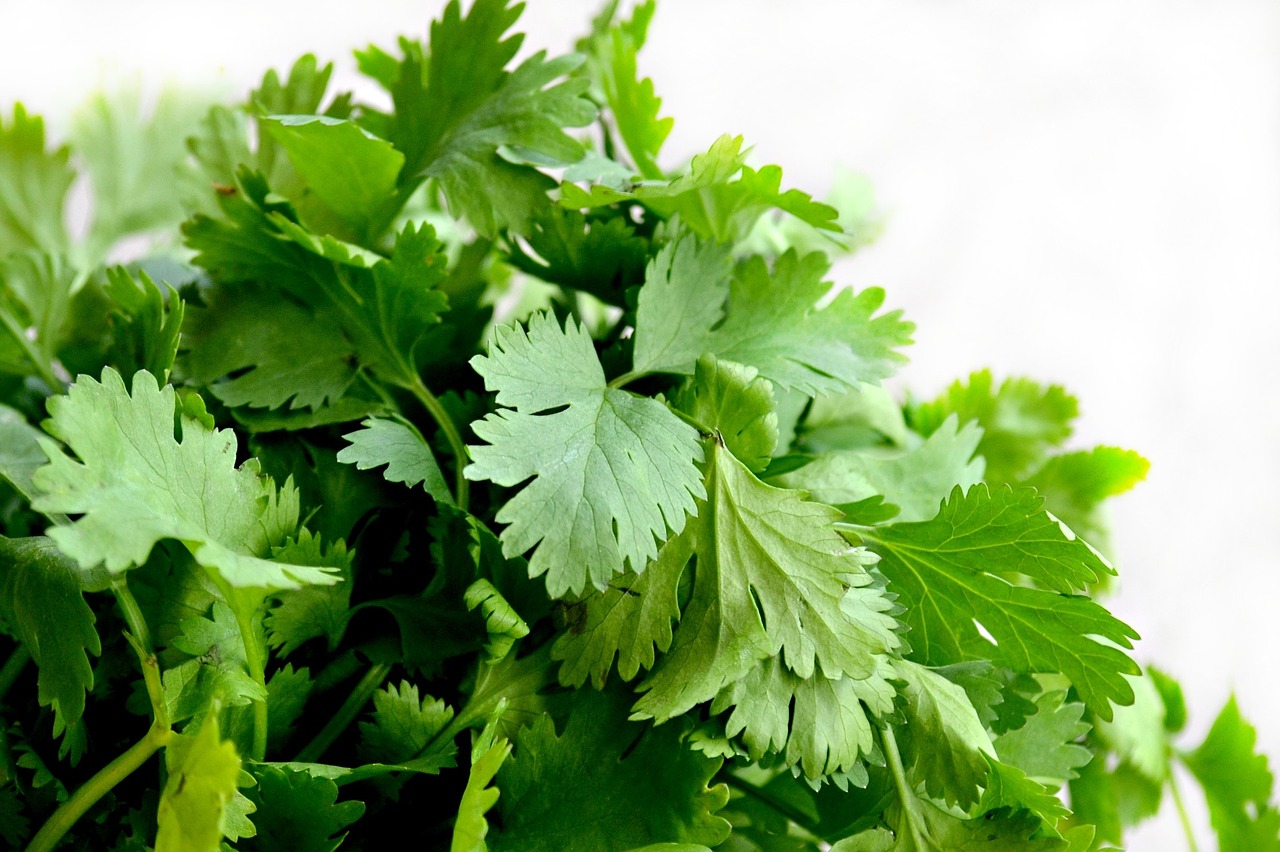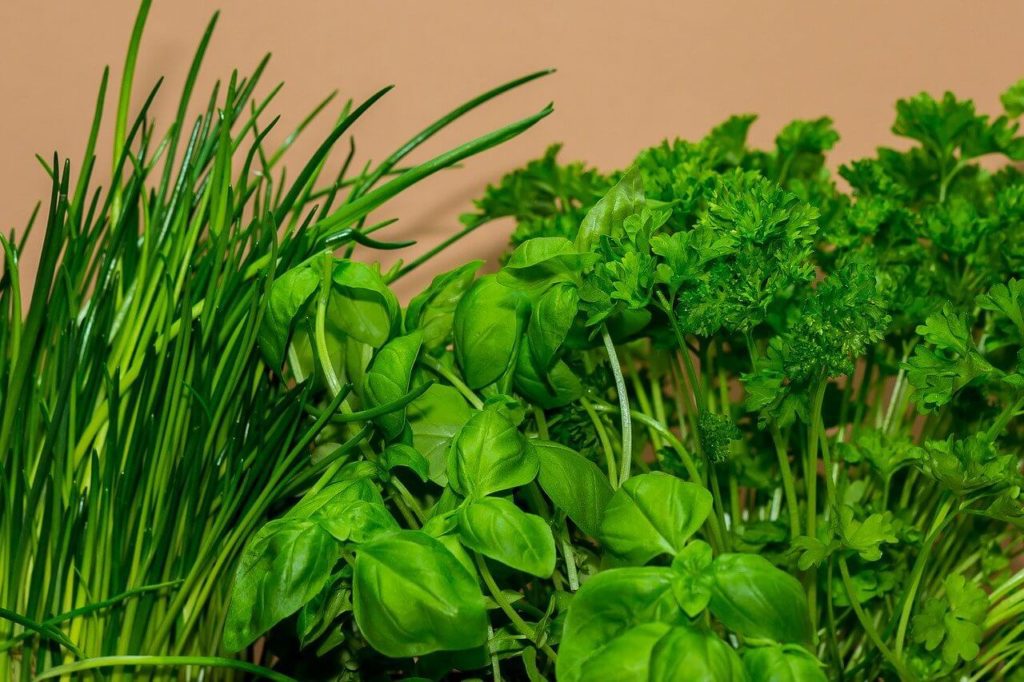Parsley and basil are both healthy herbs that can make our foods tasty. But which one is better – Basil or parsley? This basil vs. parsley dilemma has been going on for many years. Before coming to any conclusion, we need to understand their health benefits in detail.
Table of Contents
What is Basil?
Basil or Sweet Basil belongs to the Lamiaceae family, which has aromatic leaves. Basil leaves are native Indian kitchen herbs. They can be dried and used while cooking several dishes. Basils add an authentic sweet minty taste to the dishes. People also like drinking tea made of fresh Basil leaves.
Health Benefits of Basil
Basil is one of the ancient herbs used by people. Apart from its health benefits, it also has excellent healing powers. Holy Basil is treasured because of its medical values and healing properties. Basil is also used in various culinary preparations. This herb enhances the taste of the food and builds one’s immunity system. Some of its amazing benefits are mentioned below:
1. Digestion
Basil leaves are fantastic for our digestion. They ensure anti-inflammatory action in our digestive system and maintain the acid balance in our bodies. Basil leaves help restore the proper pH level in one’s body.

2. Anti-inflammatory particles
Basil leaves contain powerful essential oils like citronellol, linalool, eugenol, and others. They help to reduce inflammation through their enzymes. Basil leaves lower the risk of heart diseases, inflammation, and arthritis. It can also soothe headache, cough, cold, sore throat, flu, and mild fever.
3. Antioxidants
Basil leaves contain two primary anti-oxidants, viceninare, and orientin. They help to reduce the oxidative stress in our body and protect our bodies from radical damage. Basil leaves also enhance our immunity system, reduce skin aging, and maintain our cellular structure.
4. Skincare
They are great cleansers for our skin. The remedial oil cleans the pores of our skin and removes dirt and impurities. They also prevent the formation of skin acne.
5. Depression
Basil leaves stimulate happy hormones in our bodies and help us to fight depression and anxiety. The essential oils present in Basil leaves work as a tremendous anti-stress agent.
6. Diabetes
It controls blood sugar and helps patients with diabetic issues. The oils help to cut down triglyceride and cholesterol in our blood.
7. Liver
Basil leaves are very beneficial for our liver. The liver is an essential part of our body and plays a prime role in metabolism. Basil leaves prevent fat build-ups in the liver and keep it healthy.
8. Healthy stomach
Basil leaves prevent bloating and water retention in our stomach and thus relieve signs of acidity and various tummy problems.

What is Parsley?
Parsley belongs to the family of Apiaceae and is a widely cultivated herb. It is mostly used in Middle Eastern cooking mainly for garnishing. There are two major types of Parsley leaves, one is curly, and the other is flat. The curly leaves are more popular and are used in restaurants.
Health Benefits of Parsley
Parsley has numerous health benefits and also gives an authentic natural taste to our foods. It is excellent for people suffering from high blood pressure, allergies, and other inflammatory diseases.
1. Rich in nutrition
The herb has many vitamins and minerals. Vitamin K is essential for our bone health and blood clotting. Parsley has meager calories, which makes it an excellent ingredient for various low-calorie recipes.
Also Read: 8 Fantastic Substitutes For Parsley – From Coriander To Celery
2. Antioxidants
Vitamin C, Flavonoids, and carotenoids are excellent antioxidants. Beta carotene, lutein, myricetin, and apigenin lower the risk of heart diseases, diabetes, and even lung cancer.
3. Bone health
Parsley has an abundant quantity of vitamin K, which is good for our bone health. It builds bone cells and increases bone mineral density.
4. Fights cancer
All the flavonoids present in parsley reduce the oxidative stress in our body and prevent cancer. It is also rich in Vitamin C, which is an excellent anti-cancer agent.

5. Eyes
Beta carotene, lutein, and zeaxanthin are three ingredients that protect our eyesight and enhance our vision. They also prevent us from diseases that can lead us to blindness. Also, Vitamin A present in Parsley is terrific for eye health.
Thus, Parsley’s abundant mineral, antibacterial, and nutritional properties make it a healthy herb for all of us.
Basil Vs. Parsley: Comparative evaluation
Both Basil and Parsley are great for our health and add distinctive flavors to our food. Their nutritional value boosts our immune system and keeps our body fit. A comparison of their nutritional benefits is given below so that we can solve our Basil vs. Parsley conflict.
Minerals
Basil and Parsley, both have a high level of minerals. Three hundred grams of Basil contain 28.3% Calcium and 28% Magnesium, whereas Parsley has 95% Iron and 87% Potassium. Apart from these, both of them have a fair amount of Copper, Zinc, Sodium, Phosphorus, and other minerals.
Vitamin
Basil has a higher amount of Vitamin B6, which is 72%, whereas Parsley has 14% vitamin B6. Basil contains 7% Vitamin B5, 1556% Vitamin K, 90% Vitamin C, and 317% Vitamin A. Parsley has 665% Vitamin C, 6150% Vitamin K, 506% Vitamin A. All these vitamins make them great for our health.
Protein
Both parsley and basil contain an almost similar amount of protein. Basil has 19% protein, whereas Parsley has 18% protein elements.
Carbohydrates
Parsley has a high amount of Carbohydrates compared to Basil. Basil leaves contain only 3% of Carbohydrates, and Parsley has 6%.

Healthy fats
Basil has 3% of healthy fat, and Parsley has 4%. These fats are good for our skin and stomach.
Glycemic level
Parsley has a lower glycemic index compared to Basil.
Sugar, Saturated fat, and Sodium
Basil leaves contain a comparatively lower level of Saturated fat, sugar, and sodium compared to Parsley.
So, depending on this evaluation, we can say, Basil is a healthy, low calorie, low fat, and low carbohydrate ingredient, whereas Parsley is an excellent low glycemic index diet.
Basil Vs Parsley: Can Basil be a substitute for Parsley?
Basil leaves can be a great Parsley replacement. It will add a new and different flavor to your food. Basil leaves will also give a bright green color to the food. We cannot tell if a dish contains basil or parsley only by our sight, but when we taste it, we can tell the difference. Basil does not have the grassy taste that herbs like parsley contain. Basil’s minty sweet flavor stands out in every dish. We can replace Parsley with Basil in recipes that contain tomatoes as tomato and basil go well together. We can also use dried Basil leaves as a substitute for dried parsley in different dishes to enhance its flavor.
So, we can say, there is no fixed answer to our basil vs. parsley dilemma. We can use them according to our needs and both of them have significant health benefits.
Also Read :
The Best Thai Basil Substitute.
Frequently Asked Questions
Here are some interesting FAQs on Basil vs Parsley :
1. Does basil and parsley taste the same?
Parsley has a slight bitter taste with a fresh scent. On the other hand, Basil has a sweet, peppery flavor with a warm aroma.
2. What is basil good for?
Basil is known to aid digestion and offers excellent skin benefits.
3. Is fresh basil better than dried?
Among the two, fresh basil has an excellent and well-rounded flavor. While dried basil has a more deeper taste with few anise notes and more mint notes.
4. Can you use basil instead of parsley in garlic bread?
Yes. You can substitute parsley with basil in your homemade garlic breads.
5. How much parsley do I substitute for basil?
You must follow the rule of 1:1 while substituting basil with parsley.
Final Words
We hope the above article gave you valuable insights on the difference between basil and parsley. Both these herbs add a delicious flavor to dishes and come with their own health benefits. These herbs are popular and a quintessential part of Italian cuisine.


